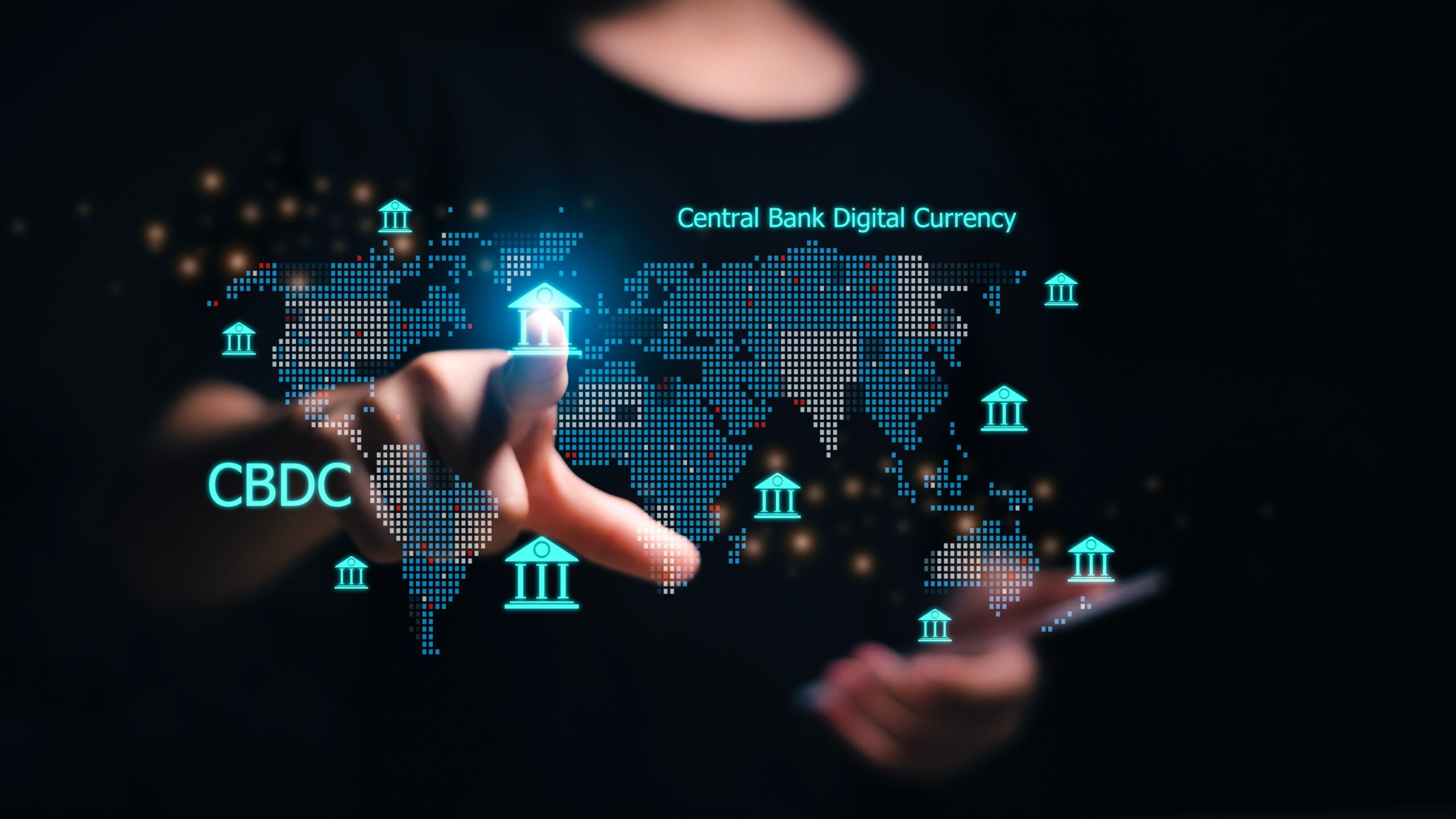- The idea of ‘free money’ is gaining momentum
- The universal basic income has been proposed by some of history’s greatest thinkers
- Various countries are already experimenting with the basic income concept
- Some arguments against free money
- Is the universal basic income utopian?
As a result of the rapid advances in automation and robotics, in ten to twenty years cashiers, factory workers, fast food restaurant employees and drivers will be out of work. With large parts of the world population left jobless, governments may have to institute a universal basic income – a fixed, regular amount of money to be paid to every citizen. The arguments for this unconditional income range from promoting social justice to increasing individual freedom and simple humanitarianism. Is this idea too utopian or has the time finally come?
1. The idea of a universal basic income is gaining momentum
Studies have indicated that almost half of US jobs and approximately two-thirds of jobs in developing nations may be replaced by automated technology and robots in the next decades. Low skilled workers such as those in the transport industry, production, office management and logistics are expected to be among the first to be replaced by robots. With the modernisation of the global workforce, the idea of a universal basic income is steadily gaining momentum. According to Elon Musk, entrepreneur, futurist and founder and CEO of SpaceX, Tesla and SolarCity, “There is a pretty good chance we end up with a universal basic income, or something like that, due to automation. I’m not sure what else one would do. I think that’s what would happen.” And Musk is not the only one with this train of thought. Various countries are already experimenting with basic incomes.

2. The universal basic income has been proposed by some of history’s greatest thinkers
The idea of free money is certainly not new. It’s been proposed by some of history’s greatest philosophers and economists, some of them Nobel Prize winners. The Universal Declaration of Human Rights (1948) even promises that one day, this utopia will come. In the mid-nineteen-seventies, there were various experiments with basic incomes. In a project called Mincome, the province of Manitoba in Canada handed out free money to some citizens every month. The objective was to see what the effects of this basic income would be, whether people would stop working, waste their money and stay poor. The results were quite remarkable. It was found that life in the area had markedly improved, work rates had hardly dropped, hospitalisation rates had decreased and there were less teenage school dropouts. In fact, there were improvements in kid’s chances at graduating from high school. In more recent studies in the UK, impressive correlations were found between free money and decreases in inequality, crime, malnutrition, teenage pregnancy rates and infant mortality. The studies also indicated higher economic growth and increased school completion rates. Economist Charles Kenny, a fellow at the Centre for Global Development, recently said: “The reason why poor people are poor is because they don’t have enough money. It shouldn’t come as a huge surprise that giving them money is a great way to reduce that problem.”
There are various versions of the idea of a universal global income, but it has always had support from both the right and the left, albeit for different reasons. Right-wing economist Milton Friedman, for instance, embraced the idea, as did Dr. Martin Luther King Jr. In 1967 he said: “I am now convinced that the simplest solution to poverty is to abolish it directly by a new widely discussed measure: the guaranteed income.” Even the Nixon Administration tried to get the idea of a guaranteed basic income through Congress. The renewed interest today is driven by the anxiety about automation and resultant job losses as well as the sense that the economy will not be able to provide jobs for everyone.
3. Various countries are already experimenting with the basic income concept
The Dutch ‘Money for Nothing’ experiment
The activist group Basisinkomen 2018 wants the Dutch government to consider a referendum on the universal basic income. Calling for a parliamentary debate, they recently handed in a petition with almost 60,000 signatures of people who support the idea of a basic income of 1000 euro per adult and 200 euro per child. A spokesperson of the group said that a basic income would meet people’s fundamental needs and provide them with enough security and freedom to make their own choices, such as start their own business, based on their calling or talents, or do volunteer work. He added that with a universal basic income, we can reduce bureaucracy and replace social security.
The two-year ‘Money for Nothing’ experiment is a collaboration between the local Utrecht government and Loek Groot, associate professor at the Utrecht University School of Economics. The pilot would see 250 Utrecht citizens currently on welfare receiving a guaranteed, unconditional income of 960 euro per month. Groot hopes the experiment will shed some light on the question whether a basic income would be more effective than the current welfare system which, according to the professor, doesn’t do enough for its citizens and actually wastes too much money. The experiment, which is set to start in January 2017, would also either confirm or debunk the notion that free money makes people lazy.
Switzerland
Switzerland recently held a public referendum on a proposal for a basic monthly income of $2.500 per adult and $600 for each child under the age of 18. Even though it failed – with nearly 80 percent of voters rejecting the proposal – many proponents believe the idea of a basic universal income is still very much alive.
Finland
Finland is preparing for a universal basic income pilot which is to be carried out in 2017 and 2018. As part of the pilot, 2,000 people will receive a monthly payment of $600. According to the Ministry of Social Affairs and Health, the results of the test will be available in 2019.
Uganda
As part of a documentary, Belgian charitable organisation Eight is currently preparing for a basic income pilot in Uganda which is set to launch in 2017. Sociologist Maarten Goethals and filmmaker Steven Janssens, co-founders of the organisation, want to help reduce global inequality and enable everybody the opportunity to prosper. The amount needed to provide a basic income for a family of one adult and two children in impoverished regions is approximately $34 per month. The primary focus of the organisation is to study the impact of the basic income on people’s engagement in democratic institutions, education participation of women and girls, as well as local economic development.
United States
Even though it is not very likely that the US will be leading the way when it comes to a universal basic income, Y-Combinator, a Silicon Valley based company, is currently running a short term pilot program with selected Oakland residents, to gauge how people in the US would respond to an unconditional basic income. The aim of the pilot is to see whether the basic income promotes freedom and what people would do with this freedom. If the pilot proves successful, the company is planning to run a larger and longer term second pilot.
4. The United States will not likely be leading the way
Because countries like the Netherlands and Finland are smaller, more homogenous, and already more supportive of government benefits and services, they are more likely to see a universal basic income in the future. For the US, the idea remains a long shot as they are not on the forefront when it comes to building social safety net programs. Yes, President Obama managed to implement a type of universal health care but this is quite likely to be repealed when Donald Trump takes office.
5. Some arguments against a universal basic income
Opponents of the universal basic income argue that giving people money will take away their incentive to work. They are of the opinion that it will create nations of demoralised, lazy people and lower GDP. Another prevailing sentiment is that ‘poor people are unable to handle money – which is why they are poor.’ According to Eldar Sharfir and Sendhil Mullainathan, authors of ‘Scarcity: Why Having Too Little Means So Much’, it’s the very condition of not having enough money that can cause people to make poor financial decisions. If people didn’t have to worry about their financial situation, they would have better opportunities at learning how to manage their money more wisely. Various pilots with direct cash grant programs have indicated that the poor don’t generally waste grants. A universal basic income would enable workers to think twice about taking unrewarding jobs, which is certainly not a bad consequence.
6. How would a universal basic income work?
The objective of a universal basic income would be to give citizens enough to be able to survive yet remain motivated to keep working, either on a part-time basis or as entrepreneur or volunteer. While there is a bit of concern that some people will stop working altogether, spend their days playing video games or engage in not-so-kosher activities, experts are of the opinion that a basic income would actually inspire innovation and creativity in most, which could lead to a more dynamic economy. They could decide to study, work part-time, start a business, pursue hobbies or spend time with their families, instead of doing work only to be able to pay the bills, which often leads to feelings of guilt, worthlessness, resentment and depression.
7. How will we be able to afford to support each and every citizen?
Supporting each citizen would be momentous undertaking. To give the 319 million people in the US a basic monthly income of $1000, tax free, would cost around $4 trillion annually. The cost of a basic income is often a reason for the idea to be opposed or dismissed. Poor countries, and possibly even the rich, wouldn’t be able to afford it. The question of cost is however a matter of which resources we allocate to which policies – like the old adage says: ‘should we spend resources on butter or guns?’ There are various ways in which a basic income could be funded. For instance, one could use the proceeds of taxes on pollution, capital wealth or consumption. Governments could tax people with a higher net worth or create special funds derived from minerals, oil or other resources. In the Netherlands, the basic income could possibly replace social welfare programs that are in place now. The latter is however a rather unique proposal. Thought leaders at BIEN (Basic Income European Network) have recently indicated that the universal basic income should rather work as a supplement to, instead of a replacement of the social safety net.
8. Is the universal basic income utopian?
At first, most social welfare programs in the US seemed utopian and none of the union states offered any type of pension until the 1920’s. Yet in 1935 President Franklin D. Roosevelt signed the Social Security Act. Also, the idea of guaranteed healthcare for seniors was dismissed as socialist and unworkable, yet now there’s Medicare. As soon as people see the universal basic income as a type of insurance against an ever changing job market with unfavourable prospects, opinions will change and we’ll realise that it is not improbable but absolutely necessary. Of course we can’t implement an expensive basic income system just like that, we’ll need to start small, and then slowly but surely change the world.




